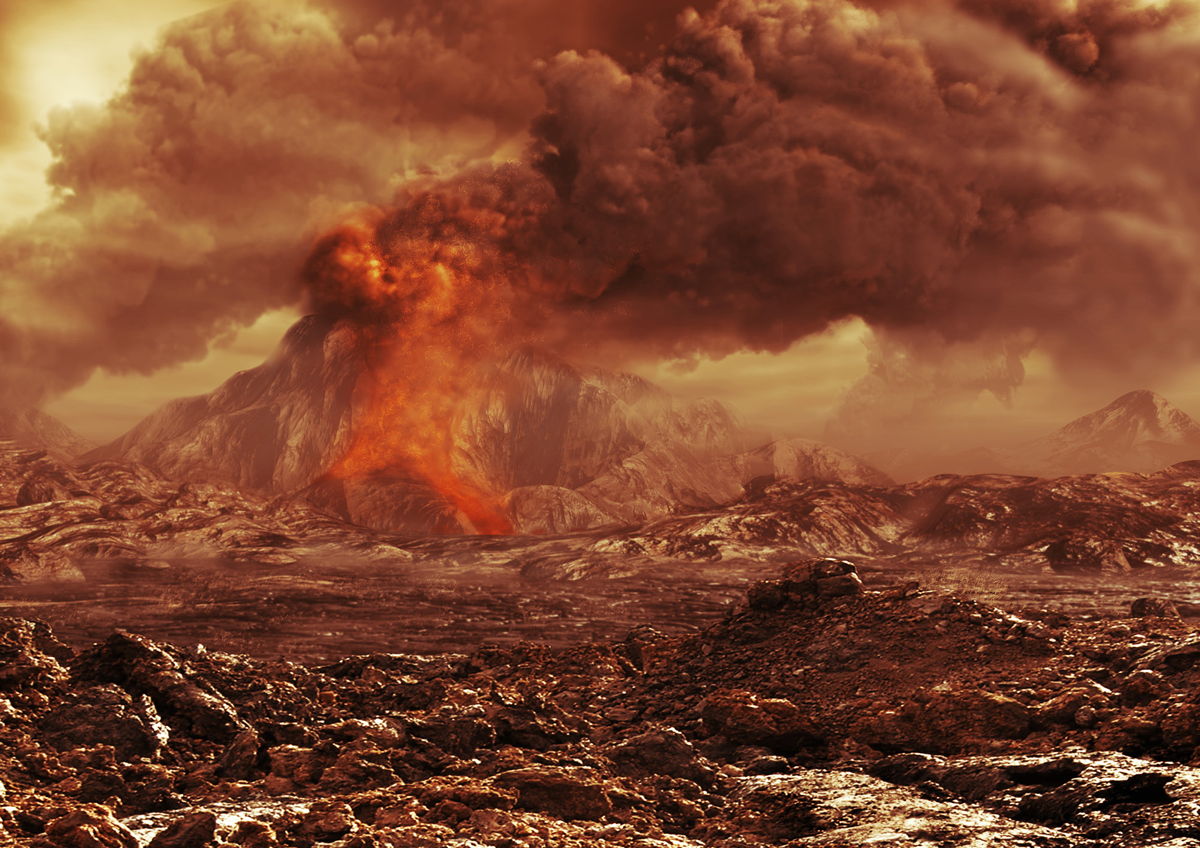Active Volcanoes Revealed on Venus

Scientists have long suspected that volcanoes played a huge role in the evolution of cloud-shrouded Venus, the second planet from the sun.
Now, images from Europe's Venus Express orbiter are showing that volcanic eruptions may not just be a thing from the past.
Scientists discovered four transient bright spots in a relatively young rift zone known as Ganiki Chasma, which was observed 36 times by the spacecraft's Venus Monitoring Camera.
Venus Spacecraft Punched, Blinded by Solar Radiation
"Venus might have ongoing volcanism," planetary scientist Alexander Bazilevskiy, with the Max-Planck Institute for Solar System Research in Germany, said at the Lunar and Planetary Science Conference in Houston on Monday. [Planet Venus: 10 Weird Facts]
Bazilevskiy and colleagues constructed mosaics from images taken during the orbital passes and computed the relative surface brightness.
They found four transient flashes, estimated to be between 980 degrees and 1,520 degrees Fahrenheit – well above the planet’s normal 800 degree Fahrenheit surface temperature.
Breaking space news, the latest updates on rocket launches, skywatching events and more!
"We were looking for these spots for several years (and) didn't find," anything, Bazilevskiy said.
He and colleagues figured the chance of seeing anything was extremely slim, just about 8 percent.
"Then we found something," Bazilevskiy said.
Four places, actually, all near Maat Mons, a giant shield volcano on Venus that scientists believe last erupted 10 million to 20 million years ago.
"Geologically, it’s like yesterday," Bazilevskiy said.
Follow-up analysis suggests the bright flashes could be lava flows stretching 16 miles or so, a chain of cinder cones, or a volcanic hotspot similar to what has been found on Jupiter's volcanically active moon Io.
Scientists plan to comb through archived radar images of Venus made with NASA's Magellan spacecraft between 1990 and 1994 to see if they can find any other evidence of potential volcanic activity.
The team also is continuing to use the eight-year-old Venus Express spacecraft to look for flashes in other rift zones.
In a synopsis of the research, lead author Eugene Shalygin, also with the Max-Planck Institute, wrote that the discovery of present-day volcanic activity on Venus would have "major implications" for understanding processes in the planet's interior, surface and atmosphere.
Editor's note: This story was updated on March 20 to correct the name of the researcher cited throughout, planetary scientist Alexander Bazilevskiy, with the Max-Planck Institute for Solar System Research in Germany.
This story was provided by Discovery News.

Irene Klotz is a founding member and long-time contributor to Space.com. She concurrently spent 25 years as a wire service reporter and freelance writer, specializing in space exploration, planetary science, astronomy and the search for life beyond Earth. A graduate of Northwestern University, Irene currently serves as Space Editor for Aviation Week & Space Technology.
